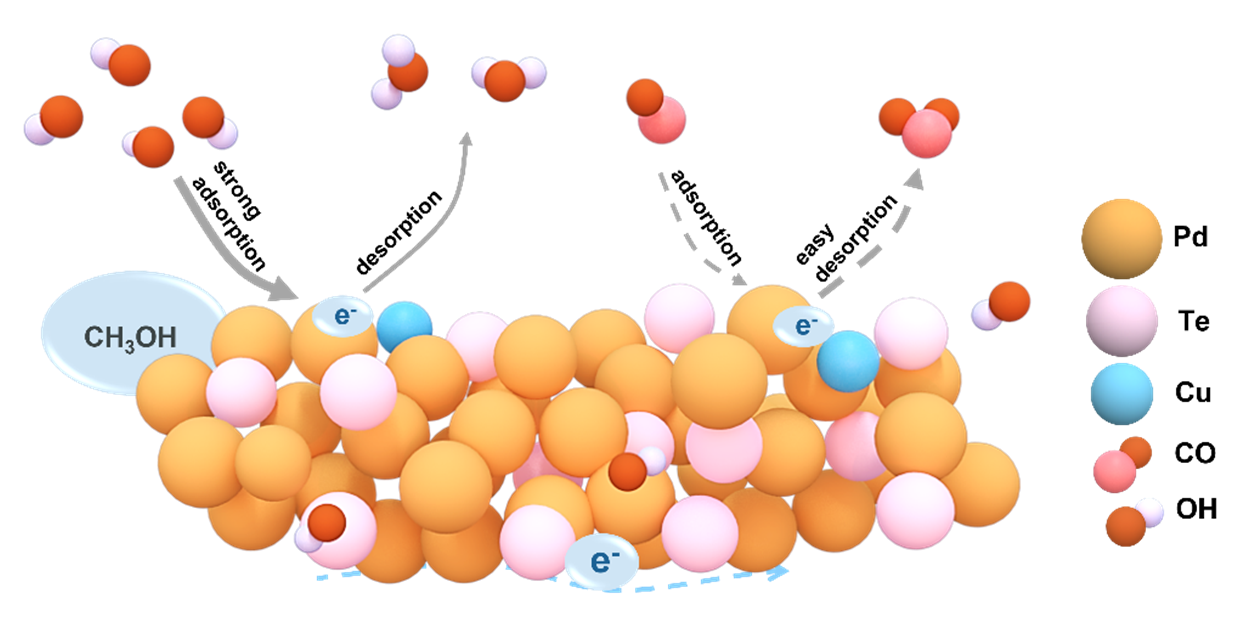《Rare Metals》: Cu doped Pd7Te3 nanowires for methanol oxidation under alkaline condition
Mengqian Li,+ Zequn Han,+ Juncheng Zhu,+ Dongpo He, Qing Hu, Wenya Fan, Qinyuan Hu, Xingchen Jiao,* Qingxia Chen*
Highly active and robust electrocatalysts for methanol oxi-dation reaction (MOR) are of great significance to the commercial availability of alkaline direct methanol fuel cells (ADMFC). Pd-based nanostructures have received considerable attention in ADMFCs among non-platinum catalysts owing to their high activity and tolerance against CO poisoning, which is strongly determined by their com-position and structure. Herein, a one-spot hydrothermal method to synthesize Cu doped Pd7Te3 ultrathin nanowires was proposed. The density functional theory calculations show that the Cu doping simultaneously facilitates the de-sorption of CO* and adsorption of OH, which refreshes the active sites quickly and thus enhances the electroactivity for MOR. Benefiting from their ultrathin architecture and the modified bonding and anti-bonding d states of Pd, Cu doped Pd7Te3 nanowires show about 2- and 3-fold mass ac-tivity promotion and enhanced durability for MOR as compared to the pure Pd7Te3 nanowires and commercial Pd/C. This work not only provides a simple one-step syn-thesis strategy for Pd-based nanowire catalyst, but also helps to inspire the catalyst design in ADMFC.

Figure 1. CH3OH oxidation mechanism over Cu/Pd7Te3 NW catalyst..
